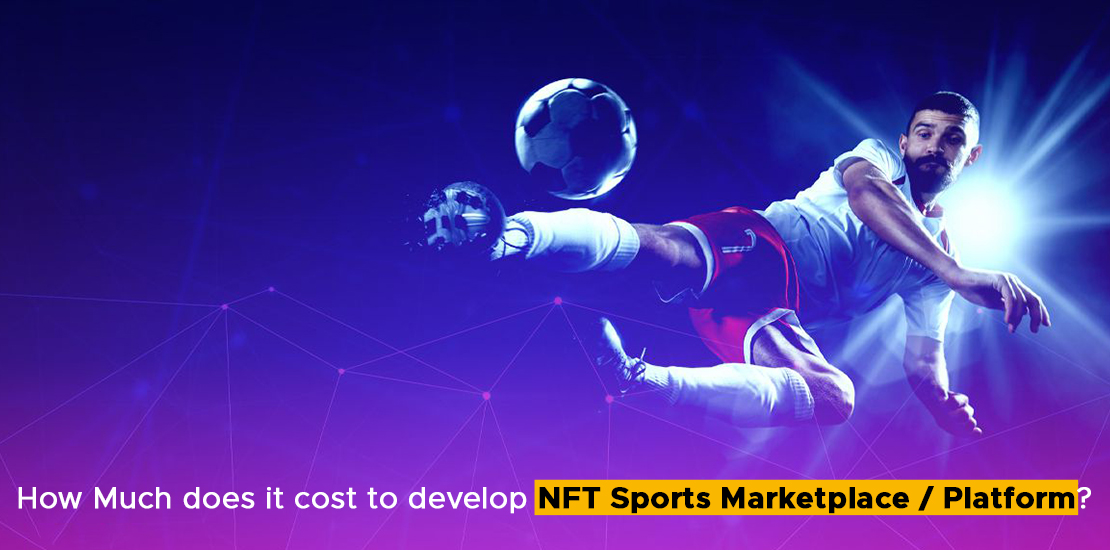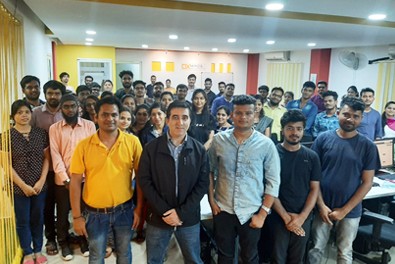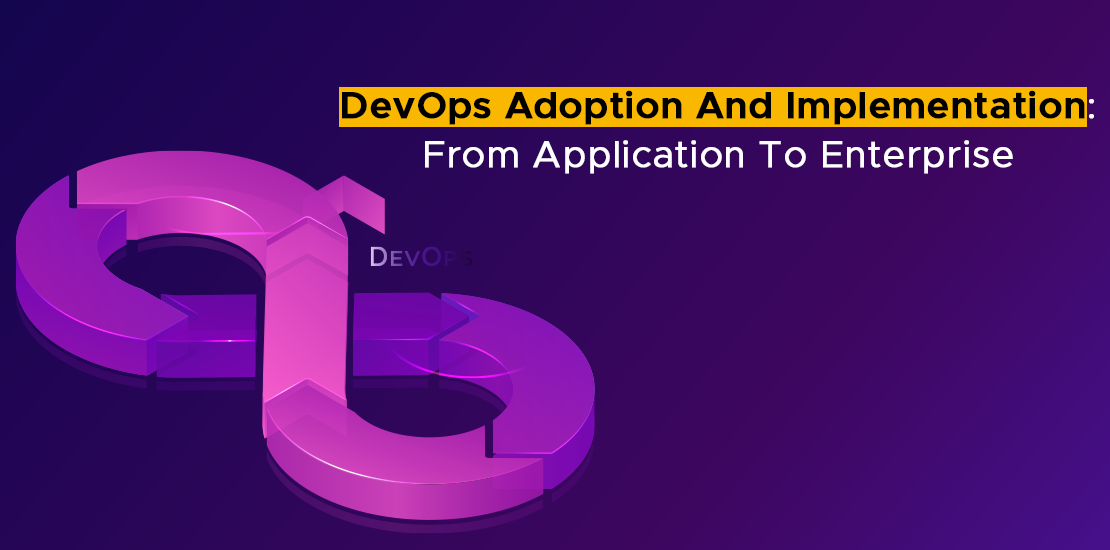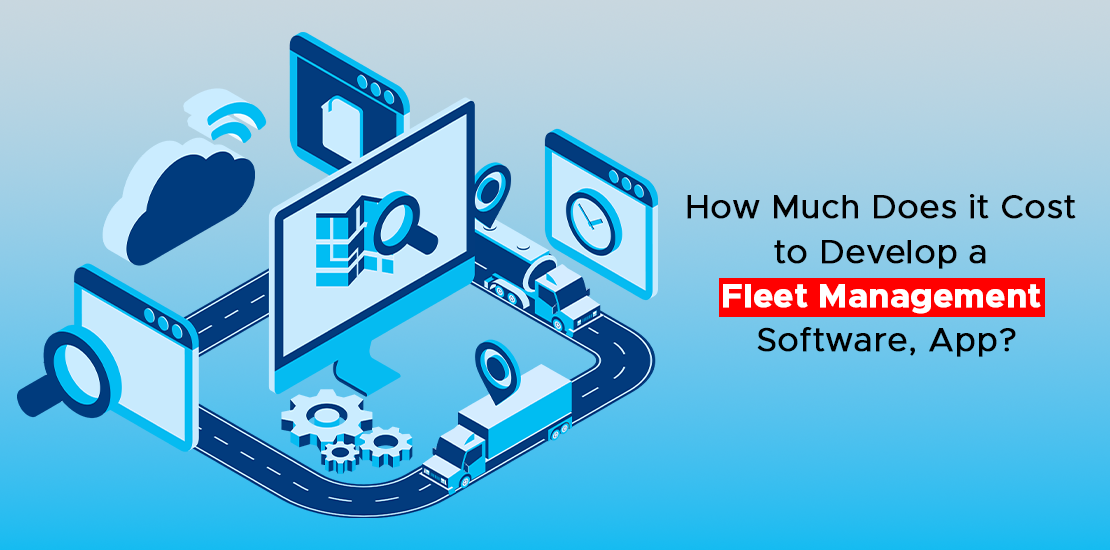- February 7, 2023
- Posted by: Admin
- Category: Innovation, Technology

As the sports sector has begun to embrace NFTs, there has been an increase in demand for NFT sports marketplace platforms. NFTs provide a new way to represent and exchange limited-edition player cards, game-worn jerseys, and rare artifacts. The implementation of blockchain technology in NFT sports marketplaces increases security, transparency, and immutability, providing NFTs with a reliable way to own and trade these one-of-a-kind digital assets.
The growing recognition of NFTs as lucrative investment opportunities, as well as the desire to possess one-of-a-kind digital assets, are driving demand for NFT sports marketplace platforms. Sports lovers and collectors are looking for a safe and transparent venue to purchase, sell, and exchange NFT sports collectibles, fueling demand for NFT sports marketplace platforms.
Investing in NFT sports marketplace platforms can also assist businesses in differentiating themselves from competitors and providing unique value to their customers. Businesses may attract and maintain sports enthusiasts and collectors while generating additional revenue through transaction fees and commissions by providing a platform for buying, selling, and exchanging NFT sports memorabilia.
Looking to Invest in NFT sports Marketplace? But Don’t know where to start and how to start?
Then rely on this blog structured by a reputable blockchain development company. The blog provides in-depth information and insights on the various factors that can impact the cost of building an NFT sports marketplace and can help businesses make informed decisions about their NFT development projects.
What is NFT Sports Marketplace/ Platform?
Table of Contents
An NFT (Non-Fungible Token) sports marketplace or platform is a decentralized virtual marketplace that uses blockchain technology to sell unique, one-of-a-kind digital assets such as collectible sports items, memorabilia, and game-used items. The items sold on these platforms are represented by NFTs, which are unique digital tokens stored on a blockchain that serves as proof of ownership and authenticity. The use of NFTs in a sports context offers fans the opportunity to own a piece of their favorite team, player, or event, as well as to buy and sell these items with others in a transparent and secure way. Additionally, NFT sports marketplaces can offer more transparency and accessibility to a wider range of fans and collectors, as well as the potential for new revenue streams for athletes, teams, and leagues.
Market stats on NFT Marketplace
According to Industry Decipher, the Sports NFT market increased from $1.3 billion to $2.6 billion in 2022 and is predicted to expand at a compound annual growth rate (CAGR) of 36.3% to $41.6 billion by 2032.
Popular categories include:
Collectible trading cards, virtual collectibles, and game-used commodities such as jerseys, shoes, and balls are the most popular categories in the NFT sports market.
Athletes and Teams:
Several high-profile players and organizations have begun to embrace NFTs and use them to sell memorabilia and items directly to fans.
It’s worth noting that the NFT sports market is still in its infancy, and it remains to be seen how it will develop and evolve over time. Despite this, the growing interest in NFTs, as well as the potential for new revenue streams and enhanced fan interaction, make them an intriguing topic to monitor in the sports industry.
How Does NFT Sports Marketplace Platform Works?
An NFT sports marketplace platform typically works as follows:
Token creation: The first step in creating an NFT sports marketplace is to create unique digital tokens that represent the assets being sold. These tokens, known as NFTs, are generated using blockchain technology and contain unique identifiers that make them one-of-a-kind.
Asset listing: The NFTs are then listed on the marketplace platform, along with information about the assets they represent, such as a description, images, and other relevant details.
Purchase and ownership transfer: When a buyer is interested in purchasing an NFT, they can make a bid or offer for the asset. If the offer is accepted, the NFT is transferred from the seller to the buyer, and the ownership of the asset is recorded on the blockchain.
Secure storage: NFTs are stored on the blockchain, which is a decentralized and secure ledger that ensures the authenticity and ownership of the NFTs.
Trading and resale: NFTs can be traded and resold on the marketplace platform, allowing fans and collectors to buy and sell their assets with others. The ownership of the NFT is recorded on the blockchain, ensuring transparency and security in the transaction.
Overall, the use of NFTs in a sports context offers fans and collectors the ability to own a piece of their favorite team, player, or event, as well as to buy and sell these items with others in a transparent and secure way. Additionally, NFT sports marketplaces can offer more transparency and accessibility to a wider range of fans and collectors, as well as the potential for new revenue streams for athletes, teams, and leagues.
Features to Include in building NFT sports Marketplace that influences the development cost
If you want to build an NFT sports marketplace, one of the first and most important cost-affecting aspects to consider is features. Your outsourced NFT marketplace development company must provide a user experience that makes it easy to search for needed files, as well as a back-end mechanism that processes complex transactions seamlessly.
Asset verification:
A strong verification method to assure the legitimacy of the NFTs sold on the site. This may include collaborations with trustworthy third-party organizations such as sports leagues, teams, and players, as well as the use of smart contracts to automate the verification process.
Search and filtering:
A search and filtering system allows buyers to readily identify assets of interest based on parameters such as category, price, and date. This can help shoppers find the precise things they are seeking for more quickly and efficiently.
Secure transactions:
A secure payment system for buying and selling NFTs, with the option for buyers to pay using cryptocurrencies or traditional payment methods. This should include secure storage of funds in escrow until the transaction is complete, to protect both buyers and sellers.
User profiles:
User profiles for buyers and sellers to manage their assets and transactions, with options for buyers to leave ratings and feedback for sellers. This can help build trust in the platform and improve the overall buying and selling experience.
Asset management:
A comprehensive asset management system that allows sellers to easily list and manage their assets, including the option to add images, descriptions, and relevant information. This can help streamline the listing and selling process and make it easier for buyers to find the assets they are looking for.
Advanced analytics: Advanced analytics and reporting capabilities provide valuable insights into the NFT sports market, including trends, popular items, and sales data. This can be useful for both buyers and sellers, as well as for market researchers, to better understand the evolving NFT sports market.
Mobile support: Mobile support, including a mobile app, allows buyers and sellers to manage their assets and transactions on the go. This can increase accessibility and convenience for users, and provide a better overall experience.
Overall, the features of an NFT sports marketplace platform should be designed to provide a secure, user-friendly, and transparent experience for buyers and sellers, and to promote the growth of the NFT sports market.
How To Build an NFT sports Marketplace/ platform?
The NFT sports marketplace development process specifically implemented by DxMinds involves the following steps:
Concept and requirements gathering:
The first step is to understand the goals and requirements of the marketplace, including the target audience, the types of NFTs to be sold, and the overall user experience. This step is crucial for ensuring the marketplace meets the needs of buyers and sellers.
Research and feasibility analysis:
Next, the development team will conduct a feasibility analysis to determine the technical and operational requirements of the marketplace, including the blockchain platform to be used, the types of NFTs to be created, and the security and payment systems to be implemented.
Design and prototyping:
Based on the research and requirements gathering, the development team will create a design and prototype of the platform, including the user interface and features such as search and filtering, asset management, and payment processing.
Development:
The next step is to develop the marketplace, including the creation of the NFTs, the implementation of the blockchain platform, and the integration of the various features and systems. This may involve working with third-party technology providers, such as blockchain platforms, payment processors, and security providers.
Testing and quality assurance:
Before launching the marketplace, the development team will conduct thorough testing and quality assurance to ensure the platform is secure, user-friendly, and performs as expected. This may include testing the payment systems, the NFT creation process, and the overall user experience.
Overall, the development process for an NFT sports marketplace involves a combination of research, design, development, testing, and marketing, to ensure a high-quality platform that meets the needs of buyers and sellers in the NFT sports market.
Tech Stack to Use in NFT sports Marketplace development
The tech stack for an NFT sports marketplace can include the following components:
Blockchain platform:
The blockchain platform will serve as the foundation of the marketplace, enabling the creation and transfer of NFTs. Common blockchain platforms used for NFT marketplaces include Ethereum, Polygon, Binance Smart Chain, and Flow.
Database:
A database will be used to store information about the NFTs, such as their attributes and ownership. Popular database options for NFT marketplaces include MongoDB and PostgreSQL.
Web framework:
A web framework will be used to build the user-facing marketplace platform, which will allow buyers and sellers to interact with the marketplace and manage their NFTs. Popular web frameworks for NFT marketplaces include Ruby on Rails, Django, and Node.js.
Front-end framework:
A front-end framework will be used to build the user interface, including the design and layout of the marketplace and the interaction with NFTs. Popular front-end frameworks for NFT marketplaces include React, Angular, and Vue.js.
Payment processing: A payment processing system will be integrated into the marketplace to allow buyers to purchase NFTs using various forms of payment, such as credit cards, cryptocurrencies, and other digital payment methods. Payment processing providers for NFT marketplaces include PayPal, Stripe, and Square.
Security: Robust security measures will be implemented to protect the platform and the NFTs, including encryption, firewalls, and regular security updates.
Deployment and hosting: The marketplace will be deployed and hosted on cloud infrastructure, such as Amazon Web Services or Google Cloud, to ensure scalability and reliability.
The specific tech stack for an NFT sports marketplace will depend on the specific requirements of the platform and the development team. Choosing the right tech stack will help ensure the platform is secure, scalable, and user-friendly, while also reducing development and maintenance costs.
How to Make Money from the NFT Sports Platform?
There are numerous monetization Models that can be employed to establish an NFT sports marketplace. Some of the most frequent models are
Commission-based:
This is one of the most frequent monetization methods for NFT marketplaces, in which the platform charges a commission on each transaction done on the platform. Depending on the platform and the type of NFT being sold, this commission can range from a few percentage points to as much as 20% or more.
Subscription-based:
In this model, the platform charges users a monthly or yearly price to access the site and its features. This can be a useful alternative for platforms that provide premium services or features that are not available on other marketplaces.
Advertising-based:
This strategy involves third-party companies or brands purchasing advertising space on the network. This includes banner advertisements, sponsored content, and other forms of advertising.
Token sales:
In this model, the platform issues its own token or cryptocurrency, which can be bought and sold by users. The platform can then use the revenue generated from these token sales to fund its development and growth.
Hybrid:
Some platforms may use a combination of these monetization models, such as charging a commission on transactions and selling advertising space.
The optimal monetization model for an NFT sports marketplace will be determined by the platform’s unique requirements, such as its target demographic, the sort of NFTs sold, and the features and services provided. Before making a decision, it is critical to carefully analyze the possible revenue streams and the costs of each model.
How Much Does it Cost to Build the NFT sports Marketplace?
The cost to build an NFT sports marketplace platform is influenced by a number of factors, including
Platform complexity:
The complexity of the platform, including the types of NFTs to be created, the number of features to be included, and the number of integrations with third-party systems, such as payment processors and security providers, will impact the cost. A more complex platform will typically cost more to develop and maintain.
Development team:
The size and experience of the development team will also impact the cost. A large, experienced team of developers will typically be more expensive than a smaller, less experienced team, but may be able to deliver a higher-quality platform more quickly.
Design and user experience: The cost of designing and building a user-friendly, visually appealing platform will also be a factor.
Technology stack:
The technology stack used to build the platform, including the blockchain platform, development tools, and hosting and infrastructure, will impact the cost. For example, using a well-established blockchain platform may be less expensive than developing a custom blockchain solution, but may not provide the same level of flexibility and control.
Security and compliance:
The level of security and compliance required for the platform will also impact the cost. Implementing robust security measures and adhering to industry regulations, such as those for payment processing and data privacy, may require significant investment.
Marketing and promotion:
The cost of marketing and promoting the platform, including advertising campaigns, social media outreach, and partnerships with sports teams, leagues, and players, will also impact the overall cost.
Ongoing maintenance and support:
The cost of ongoing maintenance and support, including fixing bugs, updating the platform with new features, and providing customer support, will also impact the overall cost.
Based on these factors, the cost to build an NFT sports marketplace platform can range from $50,000 to $500,000 or more. It is important to work with a trusted NFT development team such as DxMinds that can provide a detailed estimate for the cost of building an NFT sports marketplace based on your specific requirements.
Major Criteria to Consider Before Building an NFT Sports Marketplace
Building an NFT sports marketplace is a complex and demanding project that requires careful planning and execution. Before embarking on this journey, it is important to consider the following criteria:
Market demand: Consider the demand for NFTs in the sports industry, as well as the demand for the specific types of NFTs that you plan to offer. Research your target audience and understand their needs, preferences, and buying habits.
Legal and regulatory environment: Make sure that you understand the legal and regulatory requirements for selling NFTs in your jurisdiction, as well as the tax implications of your platform. Consider seeking legal advice to ensure that your platform is compliant with all relevant laws and regulations.
Technology stack: Choose a technology stack that is well-suited to your specific requirements, including scalability, security, and performance. Consider the costs associated with developing and maintaining your platform, as well as the expertise required to build and manage it.
Monetization model: Consider the different monetization models that are available for NFT marketplaces, and choose one that is most appropriate for your platform. Take into account the potential revenue streams and the costs of each model, as well as the impact on your target audience.
Competition: Research your competition to understand what other NFT sports marketplaces are already available, and what sets your platform apart. Consider what unique features or services you can offer to attract and retain users.
Partnerships: Consider partnering with other companies or organizations that can help you build, market, or promote your platform. These may include sports organizations, NFT marketplaces, or other companies in the sports industry.
By considering these criteria and carefully planning your NFT sports marketplace, you can increase your chances of success and build a platform that meets the needs of your target audience and generates sustainable revenue.
How DxMinds can help you Build an NFT Marketplace?
DXMinds a leading blockchain development company specializes in helping businesses build custom solutions using the latest technologies. Here’s how we can help you build an NFT marketplace:
Consulting:
Our team of experts can help you understand the opportunities and challenges associated with building an NFT marketplace and provide guidance on the best technology stack and monetization models for your platform.
Design and development:
We have a team of highly skilled developers who are experienced in building NFT marketplaces and can help you bring your platform to life. We will work with you to create a custom solution that meets your specific requirements and provides a seamless user experience.
Deployment and hosting:
Our team can handle the deployment and hosting of your platform, ensuring that it is always available and secure. We can also provide ongoing support and maintenance to keep your platform running smoothly.
Marketing and promotion:
Our marketing team can help you promote your platform and reach your target audience, using a combination of social media, search engine optimization, and other marketing tactics.
DXMinds is dedicated to helping businesses succeed in the digital world, and we have the expertise and experience needed to help you build a successful NFT marketplace. Contact us to learn more about how we can support your project.
Conclusion
NFT sports marketplaces have the potential to revolutionize the sports industry by providing fans and collectors with new ways to own and trade unique, valuable digital assets. However, building an NFT sports marketplace is a complex and demanding project that requires careful planning and execution.
To be successful, it is important to consider the market demand, legal and regulatory environment, technology stack, monetization model, competition, and partnerships. Additionally, working with a trusted NFT development partner such as DXMinds can provide the expertise, resources, and support needed to build a platform that meets the needs of your target audience and generates sustainable revenue.
Overall, the development of NFT sports marketplaces represents a unique opportunity for businesses and investors to participate in the rapidly growing NFT market and to provide fans and collectors with new and exciting ways to own and trade digital assets.
FAQs
Why is there a growing interest in NFT sports marketplaces?
The growing interest in NFT sports marketplaces is due to the increasing popularity of NFTs, which provide a new and exciting way for fans and collectors to own and trade unique, valuable digital assets. Additionally, the sports industry has a large and passionate fan base, which makes it an attractive market for NFTs.
What are the challenges of building an NFT sports marketplace?
Building an NFT sports marketplace can be a complex and demanding project that requires careful planning and execution. Key challenges include developing a platform that is user-friendly and engaging, finding the right technology stack, and establishing partnerships with sports teams, athletes, and content providers. Additionally, there may be legal and regulatory challenges, such as data privacy and security, that need to be addressed.
What are the benefits of building an NFT sports marketplace?
Building an NFT sports marketplace can provide businesses and investors with an opportunity to participate in the rapidly growing NFT market and to provide fans and collectors with new and exciting ways to own and trade digital assets. Additionally, the platform can generate sustainable revenue through fees and commissions, as well as through advertising and sponsorships.
How much does it cost to build an NFT sports marketplace?
The cost of building an NFT sports marketplace can vary widely depending on the complexity of the platform, the technology stack, and the development partner. On average, the cost of building an NFT sports marketplace can range from tens of thousands of dollars to several hundred thousand dollars.
How can a business ensure a successful NFT sports marketplace project?
To ensure a successful NFT sports marketplace project, it is important to work with a trusted development partner who has expertise in NFTs, sports, and e-commerce. Additionally, it is important to have a clear vision of the platform and its target audience, as well as a well-defined monetization model and marketing strategy. Additionally, it is important to consider the legal and regulatory environment, as well as the competition, when building the platform.




